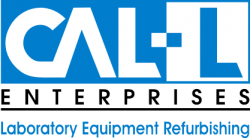Process chromatography has become of the most enabling technologies in biopharmaceutical downstream processing and is used to purify small to large molecules for further use, rather than analysis. Various biopharmaceutical companies need high performance and high throughput on a large scale which can be achieved with the help of process-scale bioseparations. The prime purpose of process chromatography is to separate the components of a mixture for more advanced applications.
Process chromatography plays a vital role in the development of monoclonal antibodies. Moreover, increasing need of separation analysis in large process industries is contributing towards the growth of the process chromatography market. The global process chromatography market is estimated to witness a tremendous growth in the near future but the need for skilled professionals would pose a great hindrance to the growth of the market.
Download Exclusive Sample of this Report: http://www.transparencymarketresearch.com/sample/sample.php?flag=B&rep_id=6251
Based on applications, the process chromatography market can be segmented as follows:
Pharmaceutical and Biotech: Process chromatography is used extensively in pharmaceutical industries to analyze the exact chiral compound in order to manufacture the correct drug. The process can effectively separate vitamins, proteins and amino acids for purification of chemicals required for manufacturing of pharmaceuticals.
Food industry: Process chromatography is used in the food industry to detect pesticide or insecticide residues from the food samples. With this simple and rapid process, purity of the organic compound can be checked quite easily.
Environmental monitoring: Environmental monitoring is one of the most significant applications of process chromatography. For instance, the determination of cyanide in the environment due to its high level of toxicity.
Forensic laboratories: In the field of forensic science, objects collected as evidence is used in forensic laboratories to detect the presence of specific substances. The process is done by identifying certain DNA, from hair, blood etc. that helps in the detection of the crime.
Based on geography, the process chromatography market can be segmented into four major regions: North America, Europe, Asia Pacific and Rest of the World. Among these regions, North America holds a leading position in the market followed by Europe. The major factors which are driving the growth of the process chromatography market in these regions are presence of large number of pharmaceutical companies and academic institutions, and huge government investment.
In addition, for the development of pure drug components, biopharmaceutical industry is now extensively using chromatography techniques in their processes. Asia Pacific is the most promising market for the growth of process chromatography market as the region is developing at a rapid pace. The factors which are propelling the growth of the market in Asia Pacific are constant increase in the number of research activities for the development of drugs and biologics, increasing technological advancements, growing demand for process chromatography techniques. Moreover, certain benefits such as better government initiative and support would further augment the growth of process chromatography market in the coming few years.
Various companies are operating in the process chromatography market for the development of a large number of processes. Moreover, most of the companies have tight partnerships with their clients to deliver the best results through process scale. Some of the major players in the process chromatography market are Siemens AG, Emerson Electric Co., Bio-Rad Laboratories Inc., Thermo Fisher Scientific Inc., GE Co., Danaher Corp., Yokogawa Electric Corp., and others.
